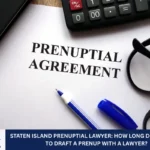A prenuptial lawyer can help couples in Staten Island, NY, make confident and informed decisions before marriage. A prenuptial agreement isn’t a sign of mistrust—it’s a responsible and thoughtful approach to protecting personal interests, financial assets, and future goals. In Richmond and other parts of Staten Island, more couples are opting to create prenuptial agreements as a means to secure peace of mind and establish clarity in their legal and financial lives.
In this blog, we’ll walk through the key benefits of having a prenuptial agreement, explain what it typically includes, and highlight why it’s especially important for couples living in Richmond, Staten Island. Whether you’re planning ahead or simply curious, this guide will give you a clear understanding of how a prenuptial lawyer can help you protect your future.
Understanding Prenuptial Agreements in Staten Island
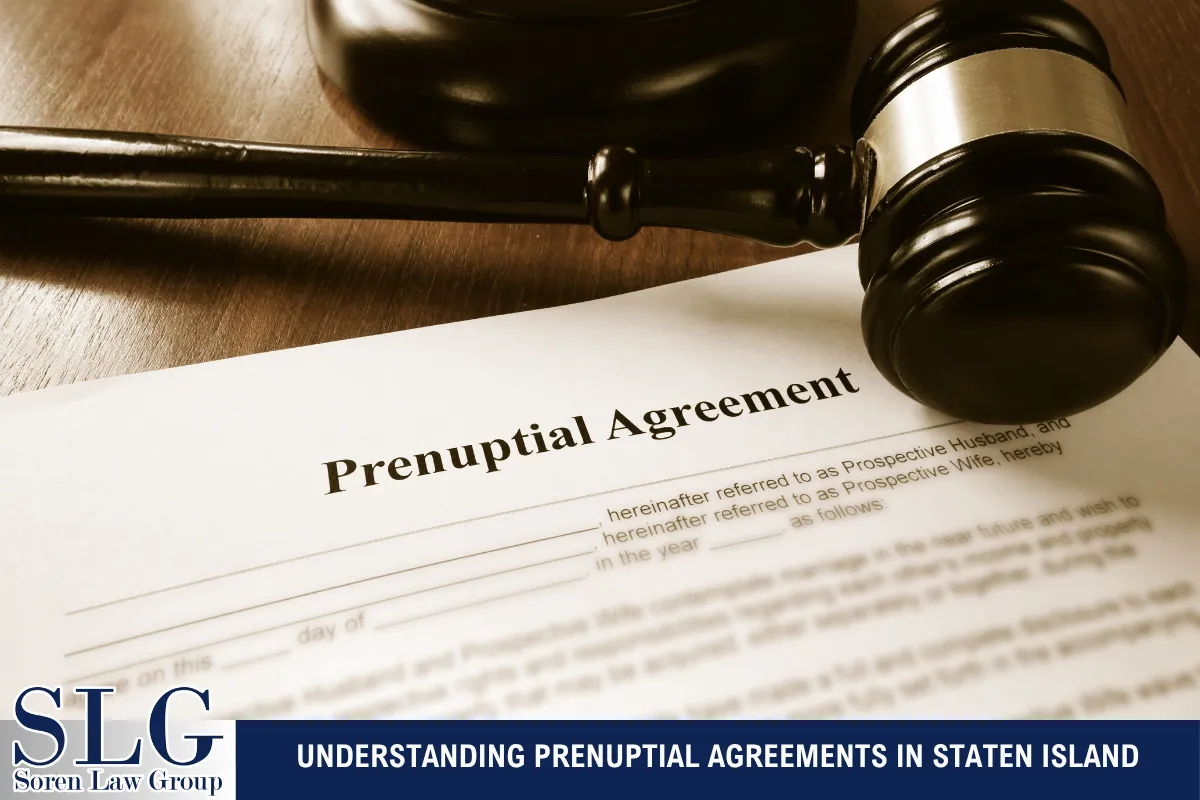
A prenuptial agreement, often shortened to “prenup,” is a written legal contract made between two people before they get married. This agreement outlines the procedures for handling certain matters in the event of divorce or the death of one spouse. In Staten Island, prenuptial agreements (prenups) are commonly used to address issues such as the division of property, allocation of debts, and spousal support rights.
Creating a prenup helps set clear expectations for both partners. It allows couples to make informed decisions about their financial responsibilities and future obligations. Unlike informal promises, prenuptial agreements are legally enforceable, provided they meet the state’s requirements. They are created voluntarily, with full disclosure from both parties.
In New York, these agreements must be written, signed by both parties before the wedding, and acknowledged by a notary. Without a prenuptial agreement, decisions regarding property and support are left to state laws, which may not align with the couple’s wishes. By taking control of these matters ahead of time, couples can avoid unnecessary conflict and uncertainty later on.
What Can a Prenuptial Agreement Include?
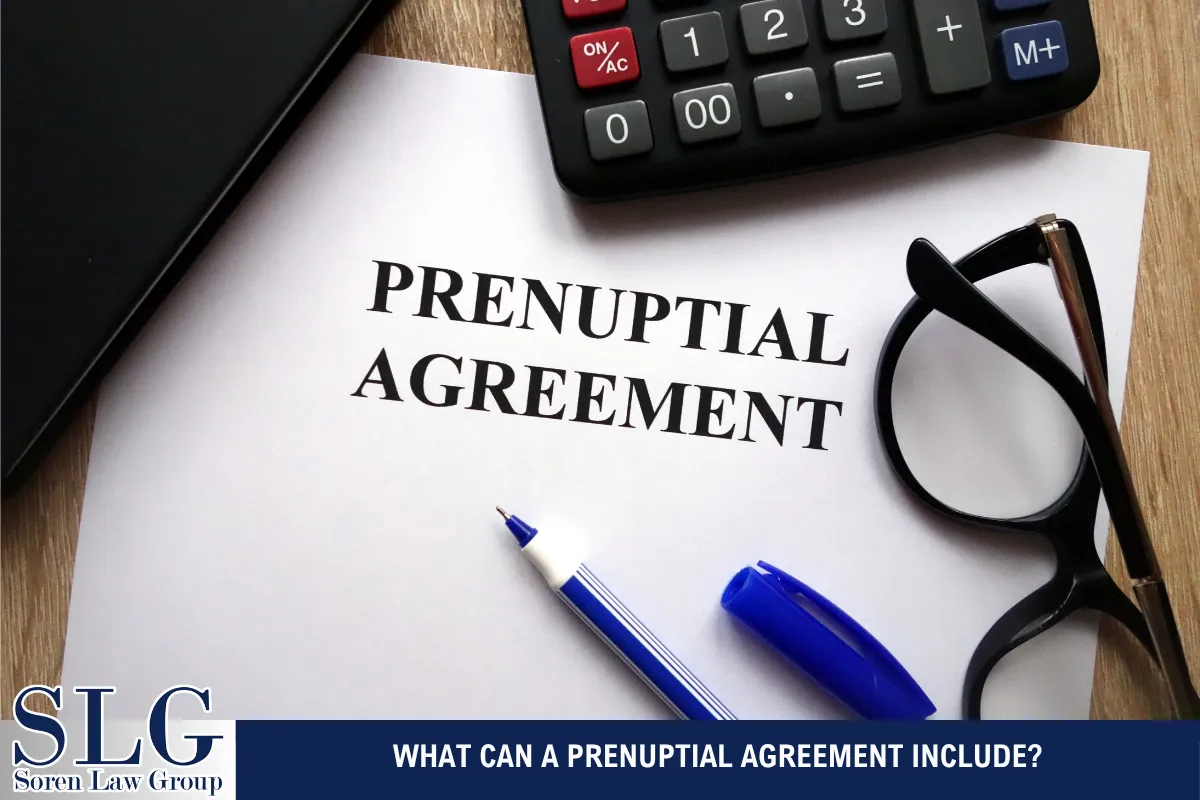
A prenuptial agreement in Staten Island can cover a wide range of financial and legal issues. While it cannot determine child custody or child support (as those are decided based on the child’s best interests at the time of separation), it can address many other important topics. Below are the most common subjects included in a prenuptial agreement.
Property Ownership
This includes identifying which assets are considered separate and which are shared. The prenup can define what each spouse owned before marriage and ensure those assets remain theirs in case of divorce. This may involve real estate, vehicles, investment accounts, retirement funds, and even personal items of high value.
Division of Debts
Debt brought into the marriage by one party can be a major concern. A prenup can specify that any existing credit card balances, student loans, or business-related debts remain the responsibility of the person who incurred them. This helps protect the other spouse from being held liable for debts they didn’t create.
Spousal Support (Alimony)
Couples can agree in advance whether spousal support will be paid in the event of a divorce or separation. They can determine how much will be paid, for how long, or whether it will be waived entirely. This prevents disagreements later and allows both parties to plan their financial futures more effectively.
Inheritance Rights and Family Property
A prenuptial agreement (prenup) can preserve family property or inheritance for children from a prior relationship. This is especially important in second marriages or blended families. Without a prenup, a surviving spouse could inherit assets that were originally intended for other family members.
Business Ownership
For couples where one or both partners own a business, a prenup can prevent complications. It can protect the business from being divided or disrupted in the event of divorce. This maintains business stability and enables the owner to retain full control.
Why Prenups Matter in Staten Island, NY
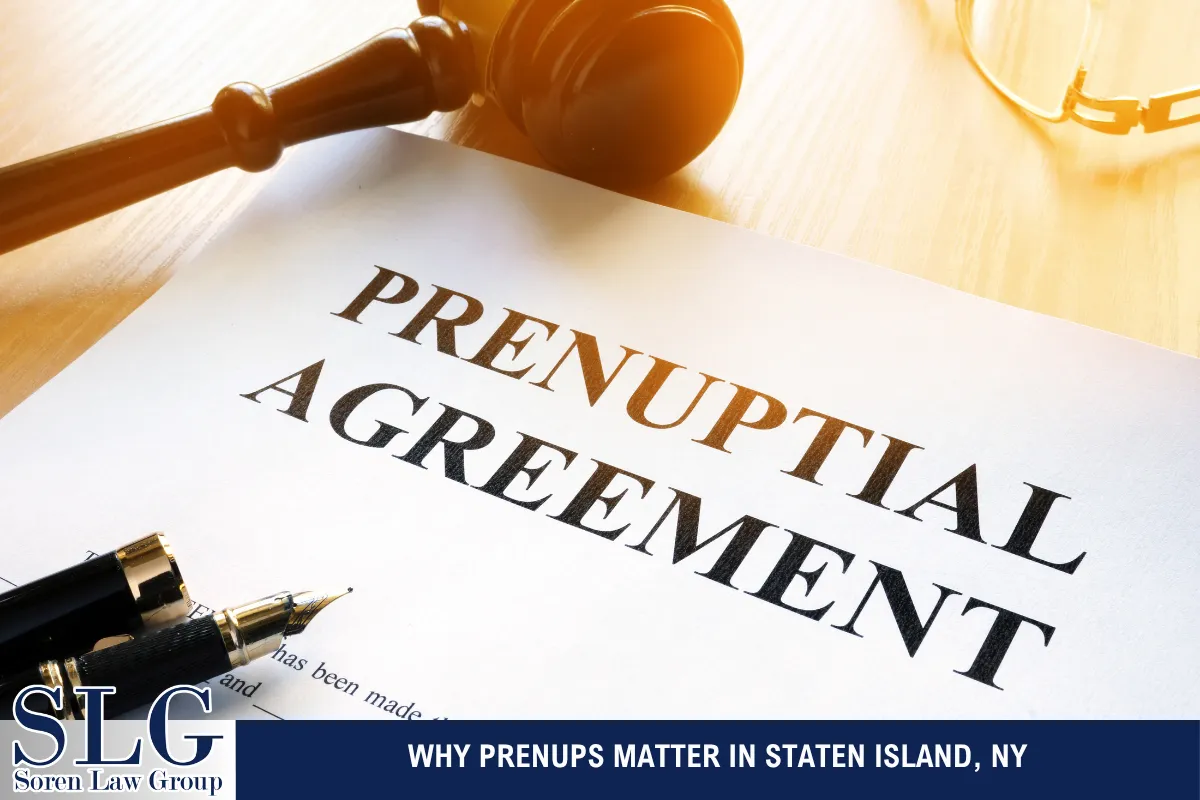
Richmond, located in Staten Island, is home to a mix of professionals, homeowners, and business owners. Property values are high, and many residents hold significant assets. A prenuptial agreement is especially valuable in these situations because it provides a way to protect those assets from unintended consequences.
In Staten Island, courts follow New York State laws, which assume marital property should be divided fairly, though not always equally. Without a prenup, this could lead to a lengthy court process that may not align with what either spouse originally intended. Creating a legally sound prenuptial agreement restores control to the couple.
Legal Requirements for a Valid Prenup in New York
For a prenuptial agreement to be valid in Staten Island, several conditions must be met under New York law:
- Voluntary Consent: Both parties must agree to the terms freely, without pressure or threats.
- Full Financial Disclosure: Each person must disclose their income, property, debts, and assets openly and honestly.
- Written Format: The agreement must be in writing and signed before the wedding.
- Acknowledgment: It must be notarized, confirming both signatures.
- Fairness: Courts will evaluate whether the agreement was fair and reasonable at the time it was signed.
If these conditions are not met, the agreement can be challenged and possibly invalidated during the divorce proceedings. A skilled prenuptial lawyer can guide clients through this process, ensuring all steps are properly followed.
Addressing Common Concerns About Prenups
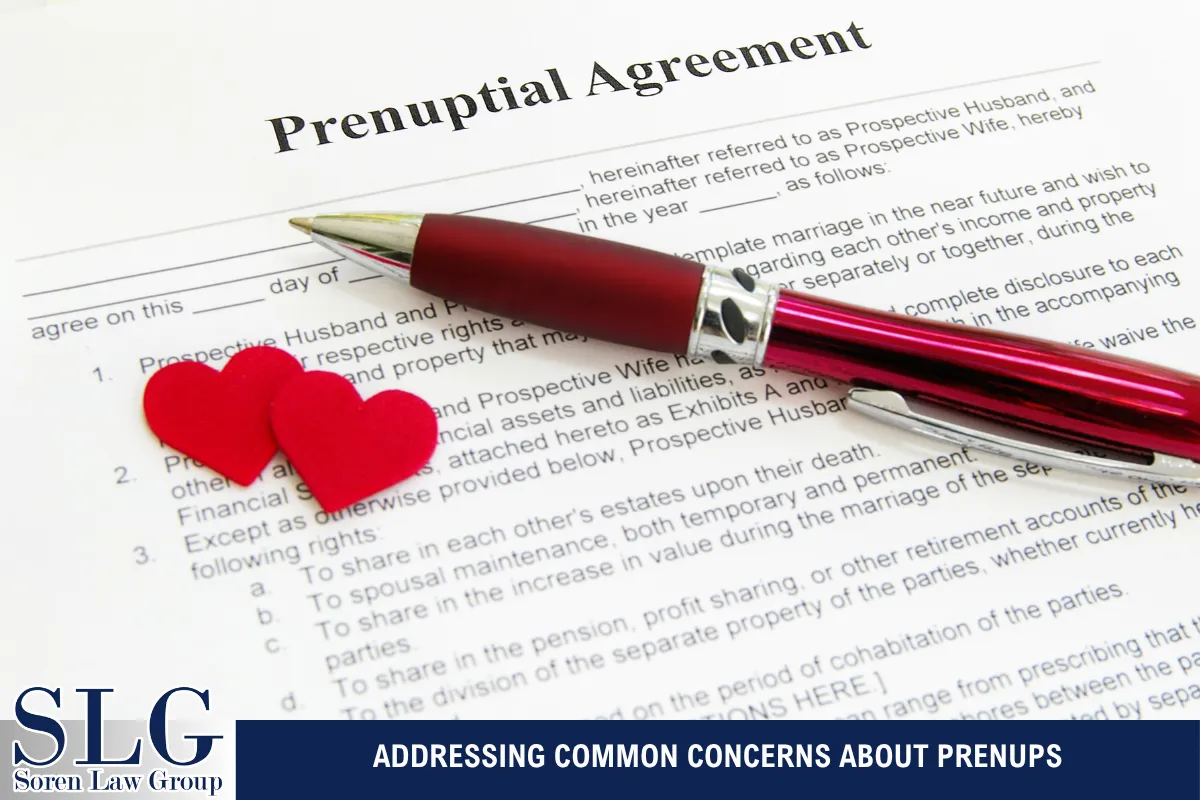
Some couples hesitate to create a prenup because they worry it means they don’t trust each other. But in reality, a prenup is about planning and being prepared. It gives both individuals a chance to be honest about their finances and discuss future expectations before making a lifelong commitment.
Clear agreements can strengthen relationships by preventing future arguments. Rather than dealing with legal surprises down the line, couples can move forward with a clear understanding of their roles and responsibilities.
When to Start the Process
The best time to discuss a prenuptial agreement is well in advance of the wedding date. Drafting and finalizing the agreement can take several weeks or even months, especially if both parties are bringing significant assets into the marriage.
Both individuals should have separate legal representation to ensure their interests are protected. This also helps avoid claims of coercion or conflict of interest if the agreement is ever challenged. A prenuptial lawyer will ensure the agreement is properly prepared, enforceable, and in compliance with state law.
Are There Alternatives to a Prenup?
In cases where a prenup isn’t created before the marriage, couples can still consider a postnuptial agreement. This is a similar legal contract signed after the wedding, but it must follow specific legal standards to be valid. Like a prenup, a postnup addresses the division of property, debts, and spousal support in the event of a separation.
However, starting with a prenup gives couples more control and peace of mind from the very beginning of their marriage.
Ending the Stigma Around Prenuptial Agreements
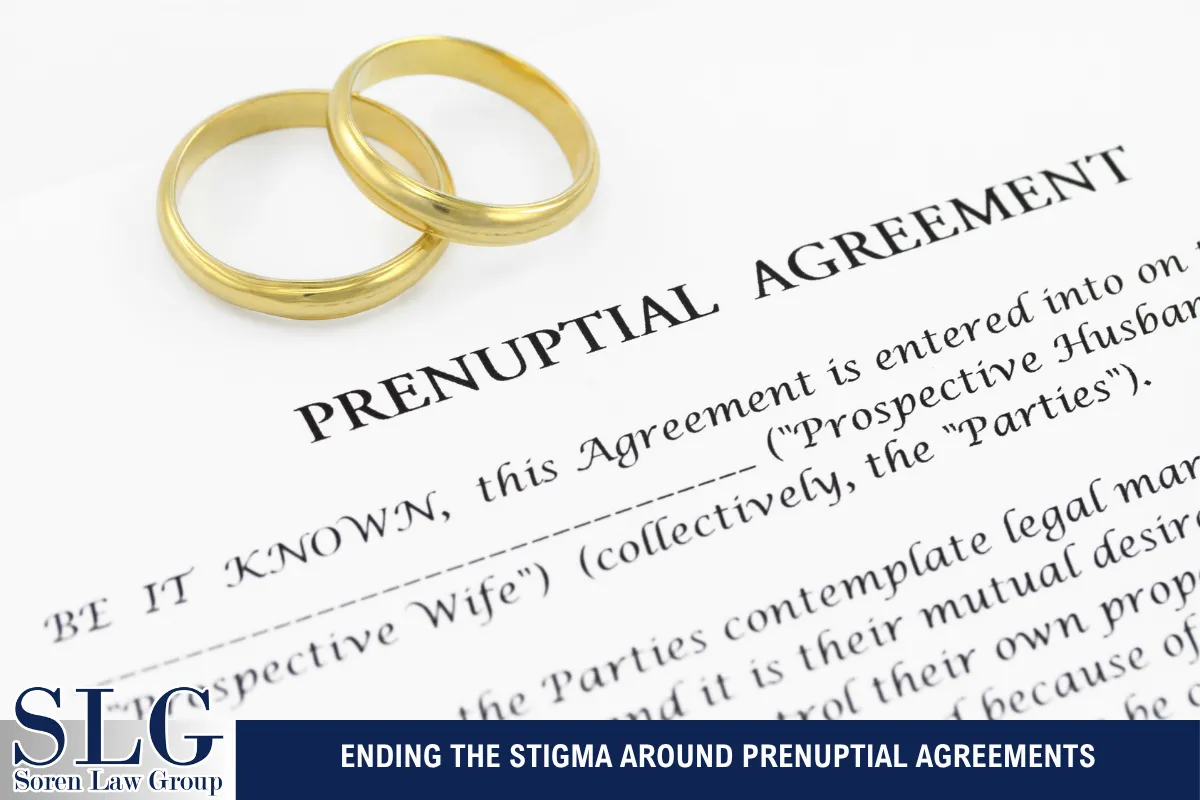
It’s time to move past the idea that prenups are only for the wealthy or people expecting divorce. In Staten Island, couples from all walks of life are embracing prenuptial agreements as part of responsible planning. Just as having insurance helps prepare for the unexpected while hoping for the best, drafting a prenup also helps prepare for the unexpected.
Creating a prenuptial agreement is a personal decision, but one that’s becoming increasingly common. It demonstrates maturity, transparency, and a willingness to engage in open conversations about the future.
Final Thoughts on the Value of Prenups
Prenuptial agreements offer peace of mind and clarity for couples in Staten Island who want to protect their future. These agreements help define financial expectations and reduce the risk of conflict, while also fostering mutual respect and trust. When handled with care and legal guidance, a prenuptial agreement (prenup) can serve as a practical foundation for a strong and lasting marriage.
Choosing to meet with a prenuptial lawyer is not a sign of doubt; it’s a prudent step. It’s a step toward creating a stable and fair union built on honesty and foresight. Couples who make these decisions together often feel more confident about their partnership and their shared goals.
Staten Island Prenuptial Lawyer – Soren Law Group
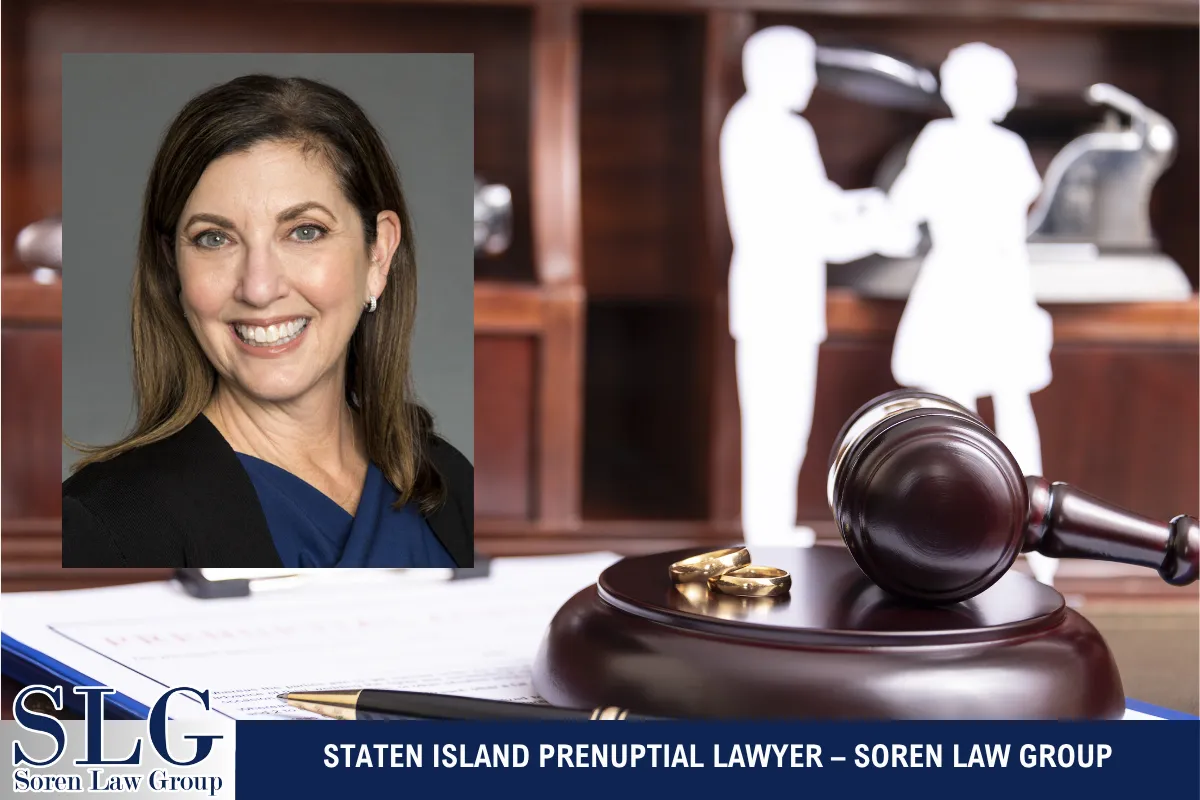
Starting a marriage on the right foot means being clear and prepared. At Soren Law Group, we help couples in Staten Island create prenuptial agreements that protect what matters most to them. Whether you’re bringing assets into the marriage, own a business, or want clear terms in place, our team is here to help you understand your options and secure your future.
We make the process simple, straightforward, and respectful. Our attorneys listen to your concerns and explain each step clearly, so you feel informed and confident. With years of experience in family law, we’re committed to helping you start this new chapter with peace of mind.
For more information, contact Soren Law Group at (718) 815-4500. Let’s ensure your marriage starts with understanding and protection!
Frequently Asked Questions About Prenuptial Agreements in Staten Island, NY
What is a prenuptial agreement, and how does it work?
A prenuptial agreement is a legally binding contract that couples sign before getting married. It outlines how finances, assets, and debts will be managed in the event of divorce or death. This agreement typically addresses property rights, spousal support, and the division of both marital and separate property.
Under state law, prenuptial agreements must be in writing, signed voluntarily by both parties, and notarized. Each spouse should have legal counsel to ensure the terms are fair and fully understood. A prenuptial lawyer can help clarify asset ownership, including real estate, retirement accounts, or family business interests.
By defining debt arrangements, alimony payments, and the distribution of marital assets, a prenuptial agreement (Prenup) protects both parties and avoids costly disputes. In some cases, it can support long-term financial goals by keeping personal wealth separate or safeguarding investments held in joint names.
What is the difference between marital and separate property?
Separate property refers to assets or debts owned by one spouse before the marriage or acquired individually through inheritance or gift during the marriage. This includes items such as personal savings accounts, inherited homes, or property purchased before the wedding. Marital property, on the other hand, consists of anything acquired together after marriage, such as a shared home, vehicles, or income.
A prenuptial agreement enables couples to clearly define which assets will remain separate and which will be considered marital property. This is especially important when family inheritances, business ownership, or investments are involved. Without a prenuptial agreement, state law typically requires a court to divide marital property equitably, which may not always be perceived as fair to both parties.
Involving a family lawyer or marriage lawyer ensures that each party’s interests are protected and that the agreement aligns with Florida law or New York’s requirements, depending on your jurisdiction.
How does spousal support or alimony work in a prenup?
Spousal support, also known as alimony, is financial assistance paid by one spouse to the other after divorce. A prenuptial agreement can include terms regarding whether alimony payments will be made, the amount, and the duration. This can prevent uncertainty and disputes in the event of a separation.
Under family law, courts consider multiple factors when awarding alimony: length of the marriage, each spouse’s income and earning ability, and the standard of living during the marriage. However, when a couple has agreed in advance through a legally valid prenup, courts often honor those terms unless they’re deemed unfair.
A prenuptial lawyer ensures any spousal support clauses meet the standards of state law and don’t violate public policy. Whether you’re protecting future earnings or ensuring support after a career change or child-rearing, it’s smart to plan with clear, agreed-upon terms regarding financial obligations.
Can a prenup protect a family business or professional practice?
Yes, a prenuptial agreement can and should protect a family business or personal professional practice. If one spouse owns a business before marriage, a prenuptial agreement (prenup) can ensure it remains separate property. It can also outline how the business or its earnings will be treated during the marriage and in the event of divorce.
Without a prenup, business interests may be considered marital property, making them subject to property division under state law. This could disrupt business operations, reduce ownership percentages, or necessitate a buyout that negatively impacts the company’s future.
Working with a prenuptial lawyer allows you to structure the agreement to safeguard ownership rights, restrict access to business profits, and prevent your spouse from claiming a portion in case of divorce. This is especially important if other family members or partners are involved. Your legal counsel will help align the prenup with your financial goals and business continuity.
Are prenuptial agreements enforceable under Florida law and New York law?
Yes, Florida law and New York state law both recognize and enforce prenuptial agreements, provided they meet specific requirements. These include voluntary consent, full financial disclosure, and fair, lawful terms. The agreement must also be in writing and signed before the wedding.
However, there are differences between the two jurisdictions. For example, Florida law allows waiving alimony payments, but only if it doesn’t leave a spouse destitute. In New York, courts may scrutinize spousal support provisions more closely and reject terms that appear unfair or one-sided.
In both states, a court will not uphold a prenuptial agreement if it was signed under duress, contains fraudulent information, or severely disadvantages one of the parties. That’s why it’s essential to work with a knowledgeable family lawyer or marriage lawyer who understands local family law. An experienced prenuptial lawyer can make sure the agreement meets all legal standards and is fully enforceable.
What happens to debt in a prenuptial agreement?
Debt is a key area many couples overlook, but it’s just as important as dividing property. A prenuptial agreement can specify which debts are separate and which are shared. For example, suppose one person enters the marriage with student loans or credit card debt. In that case, the prenuptial agreement can stipulate that these obligations remain their own.
It can also address debt arrangements made during the marriage. Suppose the couple takes out a mortgage, a business loan, or co-signs on other debts. In that case, the agreement can outline how those responsibilities will be handled in the event of a divorce.
This kind of clarity is crucial when it comes to property division. Courts in Staten Island—and under state law more broadly—may divide marital debts evenly without a prenuptial agreement. By planning, couples protect their financial goals and avoid future conflicts. A family lawyer ensures the language in your prenup is clear, enforceable, and tailored to your specific situation. Read more: When to Consult a Prenuptial Lawyer in Richmond, Staten Island, NY






